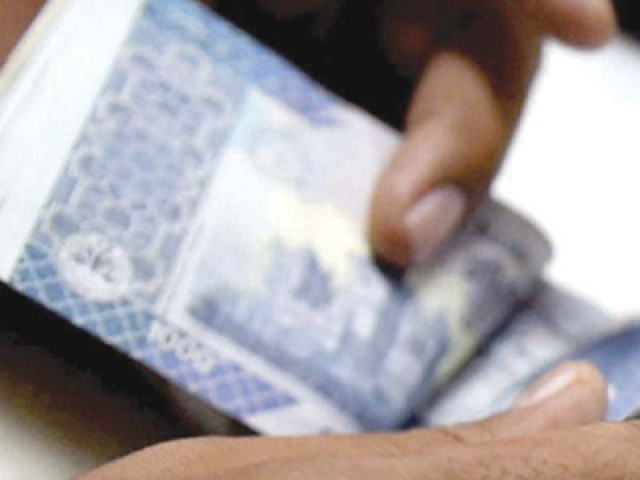Rupee best performing currency
Records biggest gain of 3.9% on expectation of foreign currency inflows

Pakistan’s volatile rupee became the “world’s best performing currency” in the week ended on Friday, as it made the largest gain of 3.9% over five working days to Rs219.92 to a dollar on expectation of significant foreign currency inflows. “The rupee remained the best performing currency on a weekon-week basis,” announced Arif Habib Limited Head of Research Tahir Abbas in a brief review of currency movements.
Friday was the 11th consecutive working day for the rupee when it maintained the winning streak since the current Finance Minister Ishaq Dar announced his return to Pakistan by ending a five-year self-exile last month. Apparently, after taking over, Dar resumed his old policy of protecting the rupee against the onslaught of the US dollar. He found the rupee undervalued at July’s all-time low of nearly 240 to a dollar and suspected the manipulation of the rupee value by commercial banks to serve vested interests. A probe in this regard is underway.
In a quick move, Pakistani officials, while strongly reacting to the credit rating downgrade by Moody’s to Caa1, told the rating agency that during recent meetings with multilateral creditors, the government had received additional funding commitment of over $2.5 billion from the Asian Development Bank. Similarly, the World Bank has pledged additional funding of around $1.3 billion for infrastructure development and other projects in the current financial year.
These are in addition to the ministry’s financing plan at the start of the financial year, they said. Besides, on the appeal of the UN secretary general, funds to the tune of $816 million were pledged by countries at a conference in Geneva on October 4, 2022. “We expect further funds to pour in from multilaterals and friendly countries in the upcoming donor conference planned to be held in Pakistan in November.
Consequently, we expect the external sector to improve further in line with the increase in liquidity (rebuilding of foreign exchange reserves).” Experts, however, anticipated that the ongoing uptrend of the rupee would be unsustainable. “The rupee may maintain its uptrend and recover another Rs5-10 in the short run. It, however, will resume a steady downward trend and depreciate to Rs240-250 by the end of current fiscal year on June 30, 2023,” Ismail Iqbal Securities Head of Research Fahad Rauf said while talking to The Express Tribune on Thursday.
Speculation is rife that the rupee will resume its downturn in the backdrop of strengthening US dollar against many major world currencies, bouncing back of global crude oil prices to above $90 per barrel, fears of recession in Europe, drop in Pakistan’s foreign currency reserves and no significant increase in the country’s exports, according to experts. Earlier, the domestic currency remained highly volatile since March this year as it somersaulted from the world’s best performing currency to become the worst and again became the best performing in the past seven days.
Before Ishaq Dar’s return, the rupee lost almost 12% (or Rs25) in 15 successive working days to an all-time low of around Rs240 in late July on increased risk of default on debt repayment, for instance, in the case of $1 billion Sukuk maturing on December 5, 2022. Dar also partially blamed his predecessor Miftah Ismail’s policies for the mess in the domestic economy. Ismail, however, had been praised earlier for taking tough decisions to steer Pakistan away from the risk of default and persuade the IMF to resume its loan programme.
Ismail also imposed administrative controls over imports to tackle the widening current account deficit. Dar, however, has continued to follow Ismail’s policies of controlling imports through administrative measures. Yet the liberalisation of imports in the next couple of months, which is a must for rebuilding the economy post-catastrophic floods, is expected to widen the twin trade and current account deficits as well as result in depreciation of the rupee.



















COMMENTS
Comments are moderated and generally will be posted if they are on-topic and not abusive.
For more information, please see our Comments FAQ